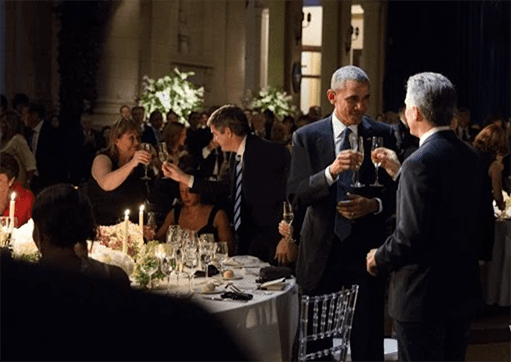The United States and Argentina share some common features. The most significant in terms of civil-military relations and defense-security separation is that since the return of democracy to Argentina in 1983 the country has adopted a system very similar to the US Posse Comitatus Act of 1878 by which the Department of Defense is prevented from interfering in domestic law enforcement.
Through a set of laws and regulations that were agreed upon by the entire political spectrum over the last three decades the armed forces are in charge of external defense and the security forces are in charge of internal safety in Argentina. In this context, President Mauricio Macri may be opening a disquieting Pandora’s Box that can seriously affect democracy and human rights in Argentina.
*This article was originally published by openDemocracy and is reposted with permission. See the original article here. This article does not necessarily represent the views of InSight Crime.
During his first eight months of government, President Macri has shown a commitment to involve the country in a militarized “war on drugs” logic, at a time when that rationale is seriously contested throughout Latin America. In the inaugural speech of December 10, 2015, Macri underlined that a key goal of his administration was “to defeat drug trafficking” as no government has done before. No serious harm reduction, demand-oriented plan has yet been announced.
By January 2016 and through Decree 228 the executive declared a state of public safety emergency: the annex of the decree consecrated the downing of aircraft with the purpose of shooting down drug-smuggling planes. The allegedly deterrent effect of this type of measure has shown to be negligible in such countries as Honduras, Peru, Colombia, and Venezuela. For several experts worldwide this policy is illegal, unwise and morally wrong.
No example in the region demonstrates the merit of such a policy. Everywhere when the military became directly involved in the fight against drugs human rights violations grew dramatically.
In February, Minister of Security Patricia Bullrich traveled to Washington to meet with the head of the Drug Enforcement Administration (DEA), Chuck Rosenberg, in order to reinforce the anti-drug combat in the country: the DEA field personnel in Argentina will almost certainly increase, following — as has been the case for many years –Washington’s agenda on narcotics and not so much Buenos Aires’ needs regarding the drug phenomenon.
In March, at the opening session of Congress, Macri asserted without providing any evidence that “drug consumption has grown exponentially;” thus generating a sense of a major drug epidemic. Also in March, during the visit of President Barack Obama, the United States and Argentina “pledged to work together to combat organized crime and drug trafficking,” highlighting the role of training provided by Washington. It is probable that some members of the armed forces, both active and retired, read that pledge as an opportunity to have a new mission: drug-war fighting.
In April, when US Under-Secretary of State for Arms Control and International Security Rose Gottemoeller visited Argentina, Defense Minister Julio Martinez said that US-Argentine cooperation is going to cover several issues, including “the fight against drug-trafficking.” In May, by means of Decree 656, the executive eliminated the transparency over the budget of the Federal Agency of Intelligence invoking the need to be more effective in dealing with critical challenges such as “terrorism and drug trafficking.” By the beginning of August and at the Annual Camaraderie Dinner of the Armed Forces, President Macri called on the military to actively participate in “defeating drug trafficking.”
In essence, the new Argentine government appeared to be geared towards overemphasizing, without any thorough diagnosis, the domestic drug question and tempted, due to an ideological belief, to militarize the handling of the drug phenomenon: a combination that is a recipe for disaster.
No example in the region demonstrates the merit of such a policy: everywhere when the military became directly involved in the fight against drugs human rights violations grew dramatically, civil-military relations became more unbalanced, corruption was not tackled, organized crime has not been eradicated and the drug issue worsened. Mexico is just the latest example of the tragedy of militarized prohibitionism.
It is time not to open the Pandora’s Box of the “war on drugs” in Argentina. It is crucial that the United States avoid any signal in favor of such a strategy.
*This article was originally published by openDemocracy and is reposted with permission. See the original article here. This article does not necessarily represent the views of InSight Crime. Juan Gabriel Tokatlian is director of the department of political science and international studies at the Universidad Torcuato Di Tella in Buenos Aires.

